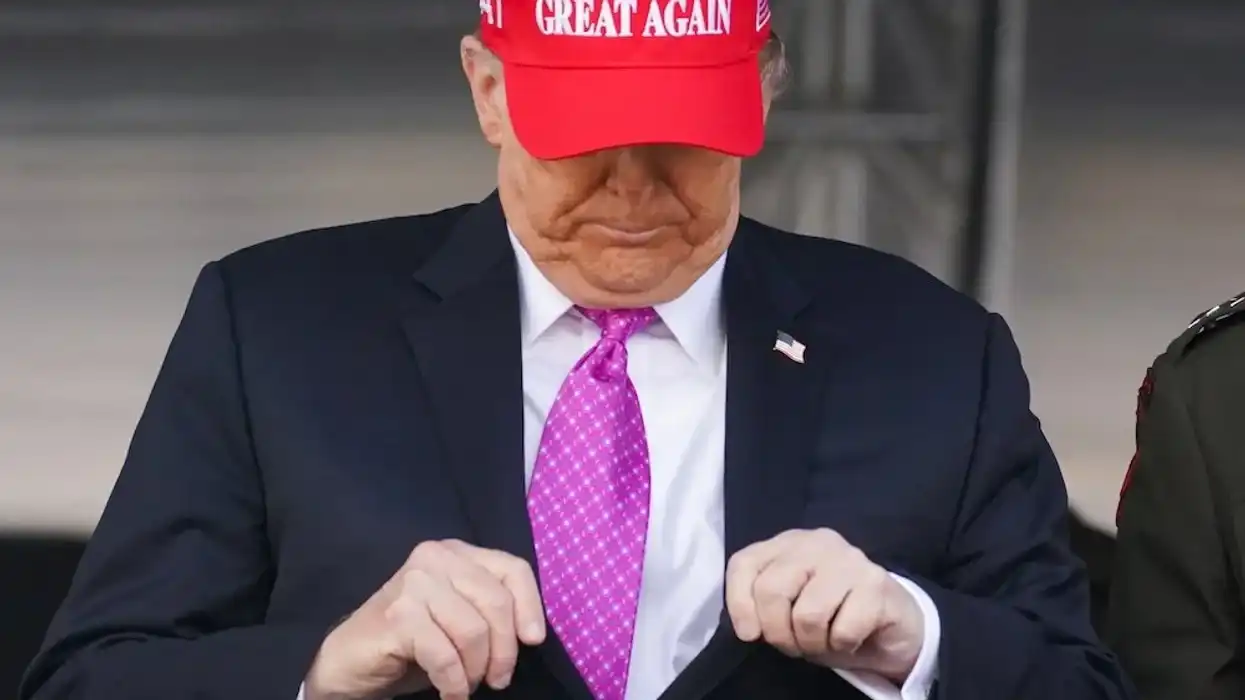President Donald Trump's victory lap in the Middle East was a short one, and his declaration of a "new dawn" there may be a false one, according to a Washington Post column by Ishaan Tharoor.
"The joy of the hostages’ friends and family members — and the palpable relief among many Palestinians in the war-blighted Gaza Strip that two years of agony and despair may be coming to an end — are rightly worth celebrating," Tharoor writes.
But the celebration is ephemeral, he says, and, "as Trump resumed meetings in Washington on Tuesday, any belief in a new dawn is premature."
Despite declarations of peace, as of Wednesday morning, fighting has not fully ended in Gaza. Violence includes Israeli forces killing Palestinians at truce lines, internal clashes between Hamas and rival groups, Hamas crackdown on alleged collaborators and lawbreakers, and a blocking of aid into Gaza leading to Hamas refusing to release some of the remains of hostages.
"The focus in Western circles remains on the future of Hamas and the demilitarization of its fighting force. Trump indicated Tuesday that the faction will be disarmed, even by force, if need be," Tharoor says.
"Hamas officials fear Israel using the ceasefire as a mere pause before reviving its punishing campaign, and wanted guarantees in writing that Israel would not resume the war, according to my colleagues," he adds.
And while Trump was praised for pressuring Israeli Prime Minister Bibi Netanyahu into accepting the same truce President Joe Biden offered him, "analysts suspect Netanyahu may find his way back into conflict as his unpopular government prepares for elections in 2026," according to Tharoor.
“All you need is a Hamas provocation and a disproportionate Israeli reaction, and you can have a spiral," Nimrod Novik, a distinguished fellow at the Israel Policy Forum, told the Washington Post.
And, as Trump campaigned relentlessly for the Nobel Peace Prize, that peace, Tharoor says, remains elusive, if at all.
"Trump’s plan expressed a vague hope for a 'credible pathway to Palestinian self-determination and statehood,' a resolution demanded by the Arab world and much of the international community," Tharoor explains, but there's a caveat.
"It's an outcome rejected by Netanyahu and his allies outright, and for which there’s little sign of momentum on the ground or any diplomatic track on the world stage," he says.
Trump's naïveté in assuming peace in the region was not lost on Middle East leaders like King Abdullah II of Jordan, who told the BBC, "“I mean he’s looking at bringing peace to the whole region. That doesn’t happen unless the Palestinians have a future.”
As for the Palestinians, Tharoor notes that Trump has been uncharacteristically quiet on that issue for one reason.
"But Trump has spoken little of the aspirations of Palestinians and views the reconstruction of Gaza more as part of a real estate bonanza than a political reconciliation," he writes.
According to Tharoor, "the convictions of the Israeli right and the reckoning sought by much of the rest of the world may only be building."
Brian Katulis, a senior fellow at the Middle East Institute, agrees.
“The big gap that I don’t think Trump or his team have really prepared the ground for … is the gap that exists between his administration and Israel on the one hand, versus the rest of the Arab world, on the longer-term questions, especially a pathway to a two-state solution,” Katulis says.
Trump's short attention span is also an issue, says Washington Post journalist Karen DeYoung.
“Trump has said he wants the Middle East transformed, with the Gaza deal and a quick expansion of the Abraham Accords paving the way for a shot next year at the Nobel Peace Prize he openly covets,” she says. “But now that he has ‘solved’ the war in Gaza, there are concerns his attention may lag and the administration may not have the bandwidth to stick with the day after.”


